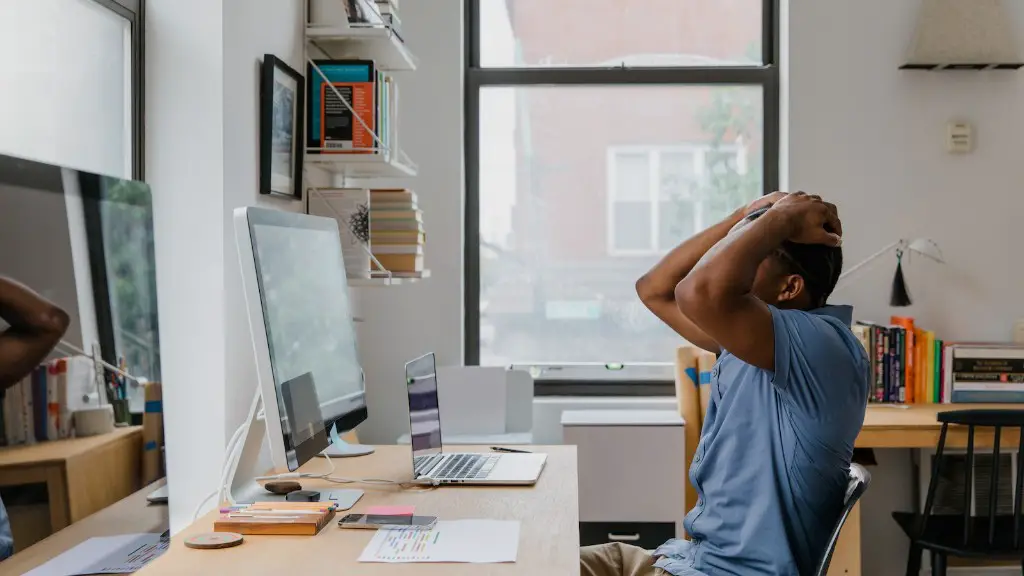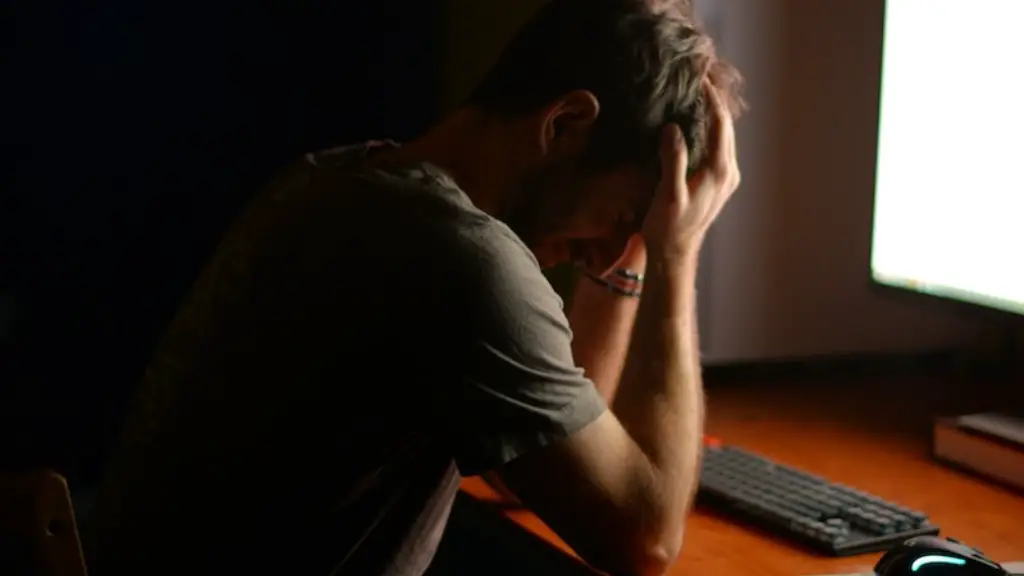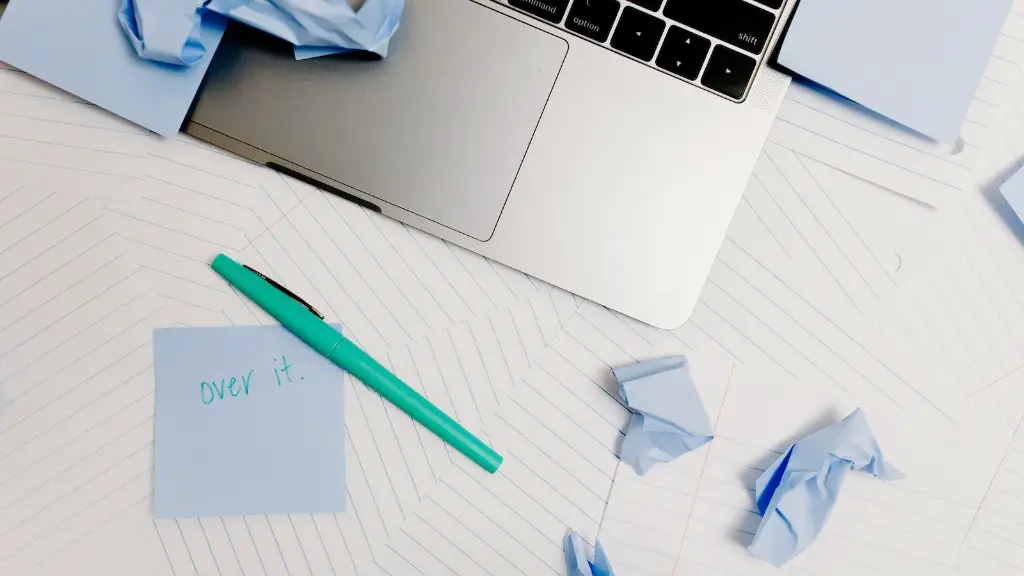There are many people who believe that stress can cause you to urinate more. While there is no scientific evidence to support this claim, there are some experts who believe that it may be true. One theory is that when you are stressed, your body releases hormones that can increase your heart rate and blood pressure. This can lead to more urine production. Another theory is that when you are stressed, you may be more likely to hold in your urine. This can lead to an increase in your urine production.
There is no one definitive answer to this question. While stress may not be the sole cause of increased urination, it can certainly be a contributing factor. When we are under stress, our bodies release hormones like cortisol and adrenaline. These hormones can cause our muscles to tense up and our hearts to race. This can lead to an increase in blood pressure and, as a result, an increase in urine production. So, while stress may not be the direct cause of increased urination, it can certainly contribute to it.
How do I stop urinating with anxiety?
If you are experiencing anxiety-related urination, there are a few things you can do to help ease the symptoms. First, try to drink less water. This will help to avoid dehydration, which can actually worsen anxiety. Second, avoid foods and beverages that are known to increase urination, such as coffee and alcohol. Finally, try to relax and take deep breaths to help ease your anxiety.
There are a few reasons why frequent urination may occur as a symptom of anxiety disorders. First, chronic anxiety can lead to an increase in the production of adrenaline. This hormone can cause an increase in heart rate and blood pressure, which in turn can lead to increased urinary frequency. Additionally, anxiety can cause muscle tension and spasms, which can compress the bladder and lead to more frequent urination. Finally, anxiety can also lead to changes in fluid intake, which can also contribute to increased urinary frequency.
While frequent urination may be a nuisance, it is generally not a serious condition. However, if you are experiencing other symptoms along with frequent urination, such as pain or blood in the urine, you should see a doctor to rule out other potential causes.
Can stress cause UTI like symptoms
UTIs are commonly caused by stress. When you feel highly stressed, your body produces high levels of cortisol. This hormone reduces the effectiveness of your immune system, making you more susceptible to infection.
Behavioral interventions for urinary incontinence may include:
-Pelvic floor muscle exercises/kegel exercises: these exercises strengthen your pelvic floor muscles and urinary sphincter, which can help to prevent or reduce incontinence
-Biofeedback: this is a technique that can help you to become aware of and control your pelvic floor muscles
-Healthy weight: maintaining a healthy weight can help to reduce stress on your pelvic floor muscles and reduce the risk of incontinence
-Scheduled toilet trips: going to the toilet at regular intervals can help to empty your bladder before it gets too full and reduces the risk of incontinence
-Intermittent catheterization: this is a procedure that involves inserting a catheter into the bladder to empty it, and can be used if other methods are not effective
-Absorbent pads: wearing absorbent pads can help to protect your clothing from incontinence
-Bladder training: this involves gradually lengthening the time between trips to the toilet, so that you can train your bladder to hold larger amounts of urine.
Why do I have to pee so often all of a sudden?
There are several factors that may be linked to frequent urination. These include infection, disease, injury or irritation of the bladder, as well as conditions that increase urine production. Changes in muscles, nerves or other tissues affecting bladder function can also lead to frequent urination.
There are a few different options for treating frequent urination. One option is bladder retraining, which involves gradually increasing the intervals between using the bathroom over the course of 12 weeks. Another option is diet modification, which involves avoiding any food that appears to irritate your bladder or acts as a diuretic. Additionally, you can try monitoring your fluid intake and doing Kegel exercises. Finally, biofeedback may also be helpful.
Why do I feel like I have to pee after I already peed?
A urinary tract infection (UTI) can cause a burning feeling when you pee. Fever, discolored urine and constantly feeling like you need to pee can also be signs of a UTI. You may also feel bladder pressure or discomfort in your back or around your pelvis.
It’s normal to feel stressed from time to time, but when stress is constant, it can have an impact on your physical and mental health. Stress can make you feel irritable, angry, and impatient, or wound up. You may feel over-burdened or overwhelmed, anxious or nervous, and unable to enjoy yourself. You may lose your sense of humour, and feel depressed or uninterested in life. If you’re experiencing these symptoms, it’s important to talk to your doctor or a mental health professional. They can help you develop a plan to manage your stress and improve your wellbeing.
What is nervous pee syndrome
Shy bladder syndrome (paruresis) is a social anxiety disorder that makes it difficult or impossible to urinate (pee) in public restrooms or with people nearby. People with shy bladder avoid using toilets that aren’t in their homes.
There is no known cure for shy bladder syndrome, but there are treatments that can help people manage the condition. These treatments typically involve exposure therapy, which helps people gradually become more comfortable with the situations that trigger their anxiety.
We’ve all had that feeling before where we suddenly have to go to the bathroom even though we just went. And it’s especially annoying when it happens at the wrong time, like during a meeting or during class. But did you know that there’s a scientific reason behind why this happens?
When we’re under stress, our fight-or-flight response tends to kick in; this triggers a release of hormones, which disrupt the usual hormones which keep the bladder relaxed, causing it to contract. This results in people feeling the need to urinate, or even involuntarily urinating in some cases.
So if you find yourself in a situation where you’re suddenly feeling the need to go, it’s probably because you’re feeling stressed. And next time, try to take a deep breath and relax, it might just save you from an embarrassing moment.
What vitamin helps with bladder control?
Vitamin C is an important nutrient that can be found in many foods. A recent study has found that high doses of vitamin C and calcium may be associated with urinary storage or incontinence, while vitamin C from foods and beverages may be associated with decreased urinary urgency. This information is important for those who are considering taking supplements or increasing their vitamin C intake from food sources. Speak to a healthcare professional to learn more about how this vitamin may affect your individual health.
If you are urinating more frequently than usual and there is no apparent cause, you should schedule an appointment with your doctor. This is especially true if the problem disrupts your sleep or everyday activities, or if you have other urinary problems or worrisome symptoms.
What over the counter medicine will stop frequent urination
There are a few over-the-counter medications that can help with overactive bladder. These include Gosha-jinki-gan (GJG), Hachi-mi-jio-gan (HE), Buchu (Barosma betuline), Cleavers (Galium aparine), Cornsilk (Zea mays), and Horsetail (Equisetum). These herbs can help to relax the bladder muscles and reduce urinary frequency.
If you find that you are urinating more frequently than usual, there are a few possible explanations. It could be that you are simply drinking more water, coffee, or other fluids throughout the day. Some medical conditions can also lead to increased urination, such as urinary infections, diabetes, hyperthyroidism, and hypercalcemia. If you are concerned about your frequent urination, it is best to speak with a doctor to rule out any potential health problems.
Is urinating every hour normal?
If you’re urinating more than eight times a day, it could signal a concern for too-frequent urination. This is according to the Cleveland Clinic. While an individual is occasionally likely to go more frequently than that, daily incidences of urinating more than eight times should be cause for concern. If this is a persistent problem, you should speak to a doctor to find out if there is an underlying cause.
If you are urinating more than eight times per day, it is important to talk to your doctor to rule out any potential health problems. While it may be normal for some people to urinate more than seven times per day, this could be a sign of a larger problem for others. The National Institute of Aging suggests talking to your doctor to ensure that there is not an underlying health issue causing your increased urination.
Warp Up
There is no one definitive answer to this question. While stress may not be a direct cause of increased urination, it can be a factor that contributes to it. For example, if you are stressed, you may drink more fluids, which can lead to increased urination. Additionally, stress can trigger the body’s fight-or-flight response, which can lead to an increase in heart rate and blood pressure. This, in turn, can lead to increased urination as the body tries to rid itself of the excess fluid.
There is no scientific evidence to support the claim that stress causes you to pee more. However, many people believe that stress can lead to an increase in urination.





